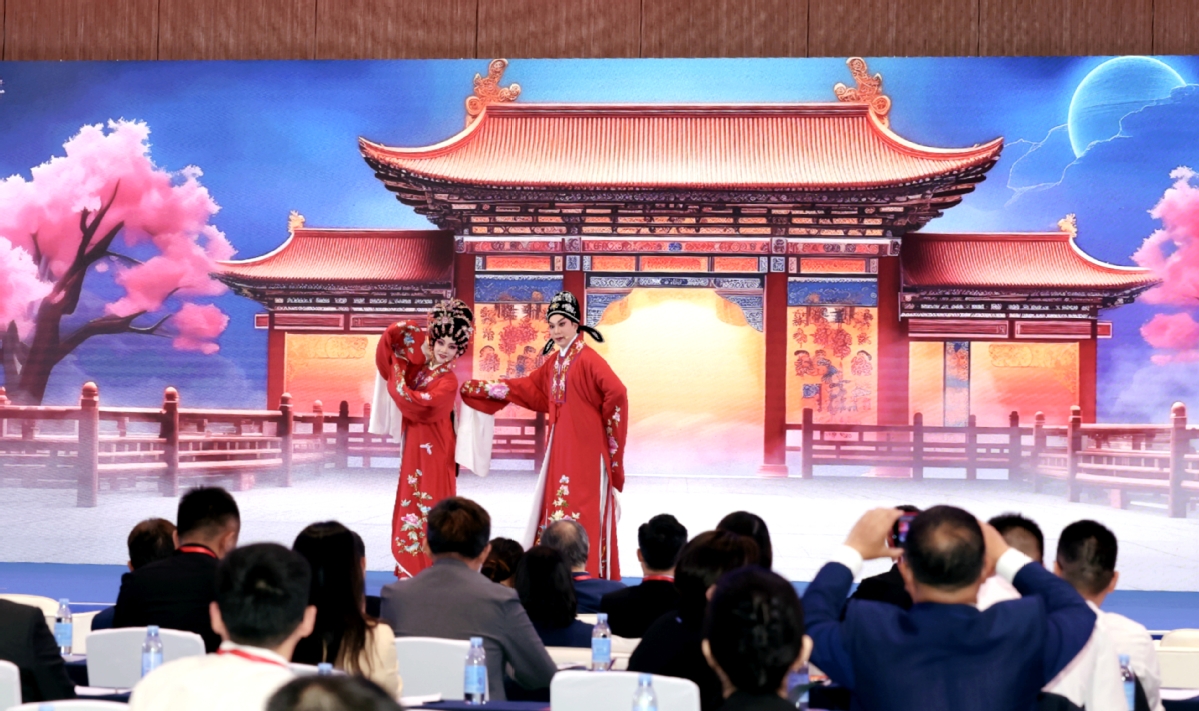

The Guangdong-Hong Kong-Macao Greater Bay Area, with its open and inclusive cultural foundation, will leverage its unique advantages in inheriting and developing Chinese culture, especially serving as a platform for international cultural exchanges, experts said on Friday.
They made the remarks at the Sub-Forum on Cultural Strength and Development Opportunities of the Greater Bay Area, as part of the Forum on Building up China's Cultural Strength 2024, held in Shenzhen, Guangdong province.
The Greater Bay Area includes nine Guangdong cities, such as Shenzhen and Guangzhou, plus the Hong Kong and Macao special administrative regions.
Kenneth Fok Kai-kong, chairman of the Hong Kong Arts Development Council, said that the Greater Bay Area boasts a rich historical and cultural foundation, and the region should solidify its cultural essence, and promote deep exchanges and cooperation.
"We should pass down our history, culture and humanistic spirit from generation to generation," he said.
Wu Zhiliang, a Macao member of the National Committee of the Chinese People's Political Consultative Conference, the country's top political advisory body, said the Greater Bay Area is not just an economic community but a shared destiny.
He said that it's necessary to establish a common spiritual home to foster shared identity and values, binding Guangdong, Hong Kong and Macao into a cohesive unit.
While Guangdong, Hong Kong and Maco share the Lingnan cultural heritage and geographical proximity, historical factors have led to differing levels of economic development, social structures and legal systems, resulting in variations in ideologies and thinking patterns.
As a result, exploring an effective way to build the cultural strength of the Bay Area will be a meaningful practice to enhance a common Chinese national consciousness and build upon universal human values.
Yu Kwok-lit, former director of the Hong Kong Art School, said, "The Bay Area culture is like a pot of soup, which contains different ingredients. If cooked well, with the right temperature, mixing, fermentation and accumulation, the Bay Area culture can quickly become a rich and vibrant broth."
Mario Ho Yau Kwan, chairman and CEO of NIP Group, said that the humanistic foundation of the GBA is rooted in the open and inclusive Lingnan culture, which continuously absorbs overseas cultures due to its unique geographical environment and historical context, making it a significant bridge for East-West cultural exchanges.
The "one country, two systems" policy is a major feature of the Bay Area, and Hong Kong and Macao serve as the gateways for Lingnan culture to reach out, connecting hundreds of millions of English and Portuguese speakers worldwide.
Xu Qinsong, former chairman of the Guangdong Artists Association, said that one major advantage of the GBA is that it serves as an international platform, enabling the promotion of local cultural excellence while facilitating the introduction of culture abroad.
Fok, from Hong Kong, said that the city, with its talent, institutions and international advantages, can promote cultural and creative industries and align them with international standards.
The city could also leverage advantages in industrial synergy and international exhibitions to promote Chinese culture to the world, he said.
Fok said that there has been a growing desire for integration within the region in recent years, especially since the Outline Development Plan for the Guangdong-Hong Kong-Macao Greater Bay Area in 2019.
Transportation infrastructure has gradually aligned, facilitating connectivity within the GBA, he said.
Ho, from Macao, also noted that the rapid integration of Hong Kong, Macao and the mainland has created opportunities in this era.
The nine cities in the Greater Bay Area share the same cultural roots with Hong Kong and Macao, making them an ideal choice for Hong Kong and Macao youth to pursue employment and entrepreneurship opportunities on the mainland, he said.